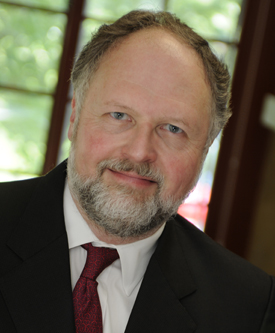Printed in the Winter 2016 issue of Quest magazine.
Citation: Smoley, Richard. "From the Editor’s Desk" Quest 104.1 (Winter 2016): pg. 2
 It’s dangerous to talk about a subject that you know only a little about. And I certainly am no expert on psychology. But sometimes, as Plato said in another context, “the risk is a beautiful one.”
It’s dangerous to talk about a subject that you know only a little about. And I certainly am no expert on psychology. But sometimes, as Plato said in another context, “the risk is a beautiful one.”
To me it seems that psychology as a discipline has gone into a stage of arrested development. The great insights of the twentieth century, starting with Freud and Jung and going on to the humanistic and transpersonal psychologies of the ’60s and ’70s, have been pushed into the shadows by the genius of neurochemistry. We no longer need to understand our behavior. We merely need to manage it chemically.
And yet if science has gone far toward telling us about how the brain functions, it is as far as ever from telling us how the mind functions. If it had, you might think it would have stanched the epidemic of depression and mental illness, but instead this is accelerating.
Here is one reason, I suspect, that psychology is marching into this wall: it has reached the limits of what it can understand about the individual without understanding the collective. If, as we’re constantly told, we are all one, there must be a point beyond which individual psychology can’t be understood apart from that of others around us. If there is a collective mind, then this mind too is very likely subject to disorders. We may be at the stage where we must know more about mass insanity before we can cure it in individuals.
One of very few who looked into this issue was the Russian psychologist V.M. Bekhterev (1857–1927). Bekhterev was, among other things, an important neurologist, but he also attempted to understand mass behavior, including mass insanity. He became especially interested in it by witnessing the Russian Revolution, where he periodically saw spontaneous acts of crazed mob violence that no one person would have undertaken on his own. He wrote: “I happened to talk to some army officers who survived the Russian Revolution and who knew their detachments well. All of them claimed that when they would talk to an individual soldier it was easy to convince him to adopt a sensible view of things, but as soon as this soldier found himself in a crowd at a political meeting, he would accept the collective slogan . . . and would express his agreement by shouting ‘Right! Right!’”
Bekhterev did not get terribly far in advancing a theory about this type of behavior — he seems to have thought of it as the result of a kind of electrical impulse that jumped from brain to brain in a crowd — but at least he did try to investigate it. I’m not sure that much progress has been made since then.
In Bekhterev’s time, the issue was the behavior of crowds — a mob of people maddened into riot, a company of soldiers ganging up and shooting the officers. While this still seems to be poorly understood, we probably need to add another issue to the mix: the behavior of virtual crowds. After all, the period since 2010, when social media became a fact of life for most Americans, has been a time of unusual hysteria and dissociation. I’m always astonished to go on Facebook and see how many people are furiously publicizing the people and causes they most hate.
We are living in a world that is increasingly intertwined. This fact greatly heightens the possibility of the contagion of madness. Thus I don’t believe that we will be able to solve any of today’s most pressing issues—poverty, violence, injustice, environmental contamination — without understanding the collective dimension of our own minds, including its dysfunctions.
This issue’s theme is “Spirituality and Culture,” so it’s appropriate to ask if these collective psychological issues are spiritual issues as well. I believe they are. In the first place, we speak of spirituality and psychology as separate things only as a convenience. They are not so in practice, just as we speak of the respiratory and circulatory systems of the body separately, even though they are completely interdependent and each affects the other at practically every point.
In the second place, the only real solution for collective madness is a collective vision, and that must necessarily be a spiritual vision. Up to now it has been provided mostly by religion — for better or worse; often religion is a form of madness in its own right. But we are far less likely to trust religion these days, and there is no other discipline that can provide anything like the sweeping perspective that religion has been able to give. Certainly science has not, because science is, in the end, a form of analysis. It is far better at taking things apart than it is at integrating them.
I firmly believe that the Ageless Wisdom offers this collective vision, now as it has for millennia. But this is far from solving the problem. What form of the Ageless Wisdom? What is it to say, and how is it to speak? Who is to speak for it? So far the answers have been extremely vague. We are not yet at the point of finding our collective inspiration or curing our collective madness. For the time being, the best we may be able to do is to keep our sanity as individuals.
Richard Smoley

